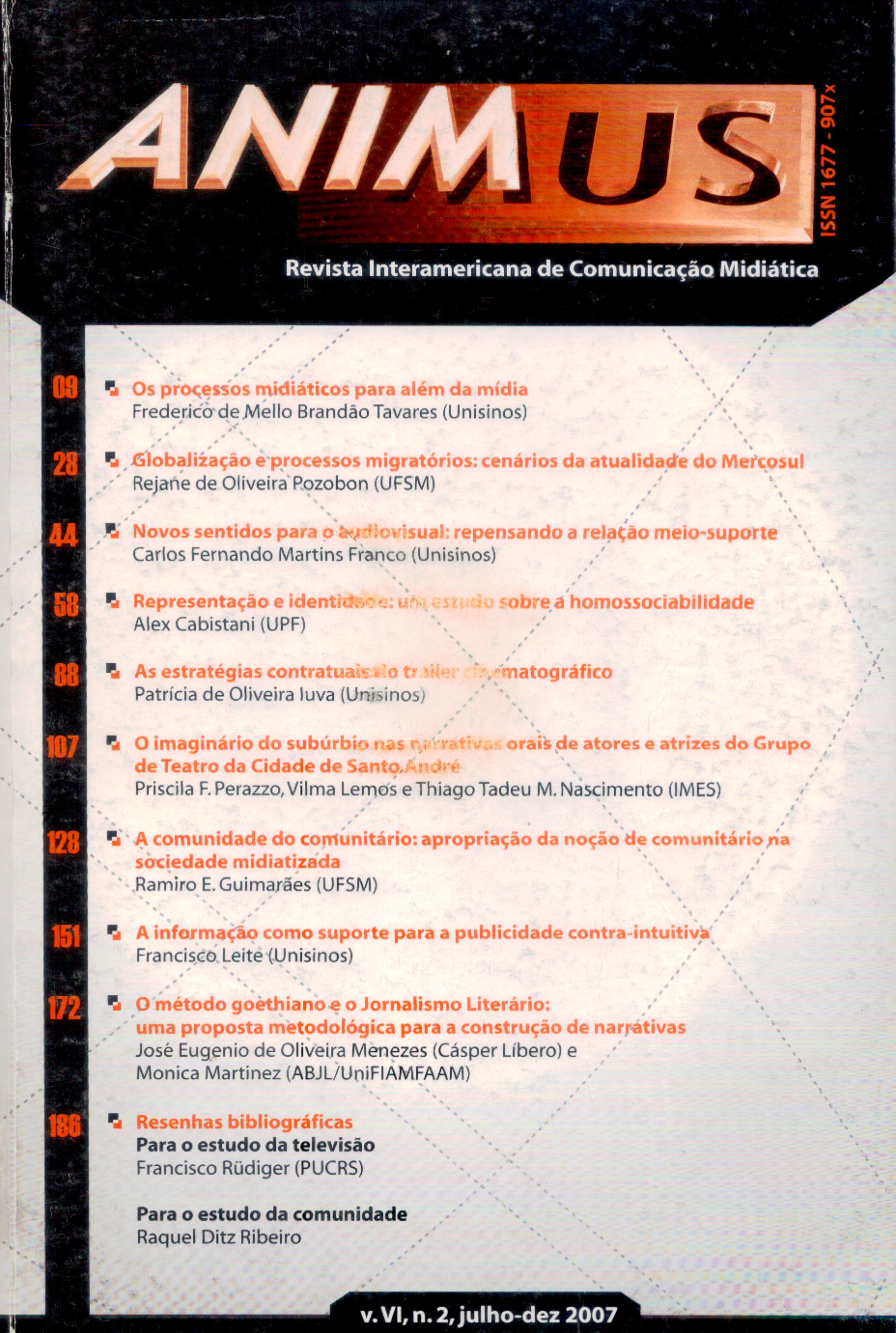O método goethiano e o Jornalismo Literário: uma proposta metodológica para a construção de narrativas
DOI:
https://doi.org/10.5902/2175497790447Keywords:
Methodology, Gothean phenomenological method, Literary JornalismAbstract
After two hundred years, the scientific community is rediscovering Johann Wolfgang von Goethe's scientific research, since the author is better known for his literary work such as Fausto. The Goethean phenomenological method is a qualitative scientific proposal which allows a deeper approach to the phenomena, a desirable way to fulfill Journalism research and practice, as it happens in Literary Journalism. The aim of this paper is to analyze three of its main subjects. The first one is the relationship between object-observer, since according to this method both are an integrated part of the phenomena. The second is the contemplative ability, meaning of the phenomena observation through long periods of time, from which emerges its third element, the understanding of whole reality because this strategy is aware of the intrinsic transformation of the scientific process.
Downloads
References
ARANTES, José Tadeu. O pensamento científico de Goethe. Disponível em: <http://www.sab.org.br/ goethe/cient.htm>. Acesso em: 14 mar. 2007.
BOHM, David. Diálogo - comunicação e redes de convivência. São Paulo: Palas Athena, 2005.
CAMPBELL, Joseph. Myths of Light- eastern metaphors of the eternal. Califórnia: New World Library, 2003.
________. O poder do mito. São Paulo: Palas Athena, 1990.
GOODWIN, Brian. Johann Wolfgang von Goethe. Resurgence. London, n° 237, p.54-55, July/August 2006.
GOETHE, J. W. von. A metamorfose das plantas. São Paulo: Antroposófica, 2005.
________. Fausto. Belo Horizonte: Itatiaia, 1981.
JUNG, Carl Gustav. Os arquétipos e o inconsciente coletivo. Petrópolis: Vozes, 2000.
LIMA, Edvaldo Pereira. Páginas ampliadas-o livro-reportagem como extensão do jornalismo e da literatura. Barueri: Manole, 2003.
________. Narrativas de transformação. Disponível em: <http://www.textovivo.com.br/edvtt04.htm>. Acesso em: 1 jul. 2007.
MARTINEZ, Monica. Jornada do Herói: estrutura narrativa mítica na construção de histórias de vida em jornalismo. São Paulo: Annablume, 2007.
MARCONDES, Danilo. Iniciação à História da Filósofos pré-socráticos à Wittgenstein. Rio de Janeiro: Jorge Zahar, 1997.
MENEZES, José Eugenio de Oliveira. Rádio e Cidade. Vínculos Sonoros. São Paulo: Annablume, 2007.
MORIN, Edgar e LE MOIGNE, Jean-Louis. A Inteligência da Complexidade. São Paulo: Petrópolis, 2000.
NICOLESCU, Basarab. O Manifesto da Transdisciplinaridade. São Paulo: Triom, 1999.
PEREIRA, Ana Luisa Ventural Vieira. "Dos outros, nós próprios: uma proposta de introdução das literaturas dos oito países de língua portuguesa no ensino de português do ensino fundamental Waldorf e o seu impacto na formação da criança e do jovem". São Paulo: FFLCH/USP, 2004.
REALE, Giovanni. História da Filosofia-do romantismo até nossos dias. São Paulo:Paulus, 1991.v. 3.
SHELDRAKE, Rupert. renascimento da natureza - o reflorescimento da ciência e de Deus. São Paulo: Cultrix, 1993.
SIMS, Norman e KRAMER, Mark. Literary Journalism. New York: Ballentine Books, 1995.
STEINER, Rudolf. A obra científica de Goethe. São Paulo, Antroposófica, 1984.
WELBURN, Andrew. A filosofia de Rudolf Steiner e a crise do pensamento contemporâneo. São Paulo: Madras, 2005.
Downloads
Published
How to Cite
Issue
Section
License
Copyright (c) 2024 Animus.Inter-American Journal of Media Communication

This work is licensed under a Creative Commons Attribution-NonCommercial-ShareAlike 4.0 International License.
The authors of texts approved by the referees of Animus - Inter-American Journal of Media Communication automatically concede, and without any charge, the right to the first publication of the submitted material.







